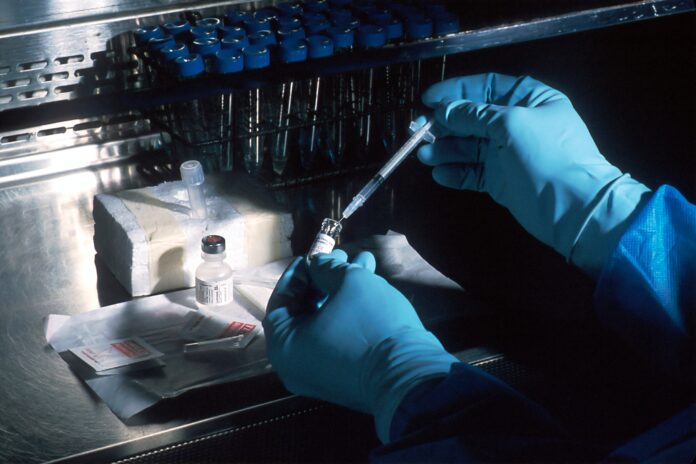Biotechnology is a rapidly evolving field that combines biology and technology to develop innovative solutions for a wide range of applications. It involves the manipulation of living organisms, their components, or processes to produce useful products and services. The term “biotechnology” encompasses a broad spectrum of techniques and disciplines, including genetic engineering, molecular biology, biochemistry, and bioinformatics. The applications of biotechnology are vast and diverse, ranging from agriculture and healthcare to environmental conservation and industrial production. In this discussion, we will explore ten important aspects of biotechnology that provide a comprehensive overview of this dynamic field.
1. Genetic Engineering: Genetic engineering is a cornerstone of biotechnology. It involves the deliberate modification of an organism’s genetic material to introduce new traits or enhance existing ones. This process is achieved by manipulating DNA, the blueprint of life, to add, delete, or modify genes. Genetic engineering has revolutionized numerous sectors, such as medicine, agriculture, and industrial production, by enabling the development of genetically modified organisms (GMOs) with desirable characteristics.
2. Biopharmaceuticals: Biotechnology plays a vital role in the development and production of biopharmaceuticals, which are medical drugs produced using living organisms or their components. Biopharmaceuticals include therapeutic proteins, vaccines, and gene therapies. These advanced medicines offer targeted treatments for various diseases, such as cancer, diabetes, and autoimmune disorders. Biotechnology allows for the large-scale production of these complex molecules through techniques like recombinant DNA technology.
3. Agricultural Biotechnology: Agricultural biotechnology has transformed modern agriculture by improving crop productivity, reducing environmental impact, and enhancing nutritional content. Biotechnological approaches, such as genetic modification, enable the development of genetically engineered crops with traits like insect resistance, herbicide tolerance, and improved nutritional value. These advancements contribute to global food security, sustainable farming practices, and the reduction of chemical pesticide usage.
4. Industrial Biotechnology: Industrial biotechnology harnesses biological processes and organisms to develop eco-friendly solutions for industrial production. It involves the use of enzymes, microorganisms, and biological systems to manufacture chemicals, materials, and biofuels. Industrial biotechnology offers a sustainable alternative to conventional manufacturing methods by reducing energy consumption, waste generation, and greenhouse gas emissions.
5. Synthetic Biology: Synthetic biology combines engineering principles with biology to design and construct new biological systems and organisms with novel functionalities. It involves the creation of artificial genetic circuits, genetic switches, and metabolic pathways to produce valuable products or perform specific tasks. Synthetic biology has promising applications in fields like medicine, energy production, and environmental remediation.
6. Bioinformatics: Bioinformatics is an interdisciplinary field that combines biology, computer science, and statistics to analyze and interpret biological data. It involves the development of computational tools and algorithms to store, organize, and analyze vast amounts of biological information, such as DNA sequences, protein structures, and gene expression profiles. Bioinformatics plays a crucial role in genomics, proteomics, drug discovery, and personalized medicine.
7. Stem Cell Research: Stem cells are unique cells with the ability to differentiate into various specialized cell types in the body. Biotechnology enables the isolation, culture, and manipulation of stem cells for regenerative medicine, disease modeling, and drug testing. Stem cell research holds immense potential for treating degenerative diseases, repairing damaged tissues, and understanding developmental processes.
8. Environmental Biotechnology: Environmental biotechnology focuses on using biological processes to address environmental challenges. It involves the application of microorganisms or enzymes to remove pollutants, remediate contaminated sites, and promote sustainable waste management. Bioremediation, biofuels production, and wastewater treatment are notable examples of environmental biotechnology.
9. Ethical Considerations: Biotechnology raises various ethical considerations regarding the potential risks, benefits, and implications of manipulating living organisms. Issues such as genetically modified organisms’ safety, informed consent in clinical trials, and access to biotechnological advancements in developing countries are subjects of ongoing debates and regulations. Ethical frameworks and responsible governance are crucial in ensuring the responsible and equitable use of biotechnology.
10. Future Perspectives: The future of biotechnology holds immense promise. Advancements in fields like gene editing (e.g., CRISPR-Cas9), personalized medicine, and nanobiotechnology are likely to shape the future of healthcare. Additionally, the integration of biotechnology with artificial intelligence (AI) and robotics opens up new frontiers for automation, high-throughput experimentation, and precision agriculture.
Biotechnology is a multidisciplinary field with significant implications for various sectors of society. Its applications range from healthcare and agriculture to industry and the environment. Understanding the fundamentals of genetic engineering, biopharmaceuticals, agricultural and industrial biotechnology, synthetic biology, bioinformatics, stem cell research, environmental biotechnology, ethical considerations, and future perspectives provides a comprehensive overview of the field’s impact and potential. As biotechnology continues to advance, it will undoubtedly shape our world in ways that we are only beginning to imagine.
Biotechnology has revolutionized the medical field by introducing innovative therapies and diagnostic tools. Biopharmaceuticals, produced through biotechnology, have provided targeted treatments for various diseases, including cancer, autoimmune disorders, and genetic disorders. The development of gene therapies, which involve the modification or replacement of faulty genes, holds immense potential for curing previously incurable conditions. Moreover, advancements in stem cell research offer hope for regenerative medicine, where damaged tissues and organs can be repaired or replaced with the help of stem cells.
In agriculture, biotechnology has played a crucial role in improving crop productivity and sustainability. Genetically modified crops (GMOs) have been engineered to possess traits that make them resistant to pests, diseases, and herbicides. This has resulted in increased yields, reduced chemical pesticide usage, and improved crop quality. Biotechnology also allows for the development of crops with enhanced nutritional value, addressing malnutrition and food insecurity in many parts of the world. Additionally, molecular breeding techniques, such as marker-assisted selection, enable faster and more precise crop improvement by identifying desirable genetic traits.
Industrial biotechnology offers environmentally friendly alternatives to traditional manufacturing processes. Enzymes derived from microorganisms are used as biocatalysts in various industries, including textiles, detergents, and food processing. By harnessing the power of nature, industrial biotechnology reduces energy consumption, minimizes waste generation, and lowers greenhouse gas emissions. Furthermore, the production of biofuels, such as ethanol and biodiesel, from renewable sources contributes to sustainable energy solutions and reduces dependence on fossil fuels.
Synthetic biology, an emerging field within biotechnology, aims to engineer biological systems with desired functionalities. Researchers in synthetic biology design and construct artificial genetic circuits, metabolic pathways, and even whole organisms. This field holds promise for the production of bio-based materials, chemicals, and fuels with tailored properties. It also offers opportunities for creating biosensors, bio-robots, and bio-computing devices, blurring the lines between biology and technology.
Bioinformatics, a key component of modern biotechnology, deals with the management and analysis of biological data. The exponential growth of genomic and proteomic data requires sophisticated computational tools and algorithms to extract meaningful insights. Bioinformatics helps in understanding the structure and function of genes, proteins, and other biomolecules, contributing to drug discovery, disease diagnosis, and personalized medicine. It enables researchers to identify potential drug targets, predict protein structures, and analyze large-scale genomic data sets, leading to more precise and efficient biomedical research.
As biotechnology advances, ethical considerations become increasingly important. The manipulation of living organisms raises questions about the safety of genetically modified organisms, the potential for unintended ecological consequences, and the equitable distribution of biotechnological advancements. Robust ethical frameworks and regulatory guidelines are essential to ensure the responsible and sustainable use of biotechnology. Transparency, informed consent, and inclusivity in research and development processes are key principles to address the ethical dimensions of biotechnology.
Looking to the future, biotechnology holds tremendous potential for transformative innovations. Gene editing technologies, particularly the CRISPR-Cas9 system, offer unprecedented precision and efficiency in modifying DNA. This opens up possibilities for developing new treatments for genetic diseases, enhancing disease resistance in crops, and even editing the genomes of non-human organisms for conservation purposes. Additionally, the integration of biotechnology with artificial intelligence (AI) and robotics paves the way for automated high-throughput experimentation, intelligent drug discovery, and precision agriculture, optimizing resource utilization and enhancing productivity.
In conclusion, biotechnology encompasses a wide range of disciplines and applications that have profound implications for various sectors of society. From healthcare to agriculture, from industry to the environment, biotechnology continues to shape our world and holds immense potential for addressing pressing challenges and improving the quality of life. By understanding the foundational concepts and key developments in biotechnology, we can navigate the complexities of this field and harness its power for the betterment of humanity.

















